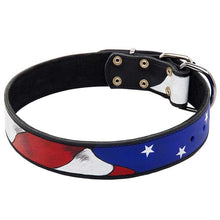4 Ways Ginger Can Help Dogs

It’s common for people to turn to ginger to help relieve nausea. But, this zesty spice can do more than help settle an upset stomach. It has many health benefits that are also good for dogs.
For centuries, people have turned to ginger root to help heal their ailments. It’s been used in Chinese and Ayurvedic Medicine, Western Science, ancient folklore remedies, and by natural health practitioners. It’s also used in cooking, juices, and teas. Queen Elizabeth I of England is said to have invented the famous cookie, the gingerbread man.
Here are some ways ginger can benefit dogs:
- Anti-Nausea
Just like people, dogs can get an upset stomach and acid indigestion. Nausea can be caused by many reasons, such as dietary indiscretion, medication, a medical procedure, motion sickness, and even stress.
Ginger contains two compounds (gingerol and shogaol) which have natural anti-nausea properties. It is also a natural anti-inflammatory that can help soothe the digestive tract and aid digestion.
Ginger should be given at the first sign of an upset stomach or up to an hour before riding in the car or doing any other activity that triggers motion sickness.
Some signals your dog might have an upset stomach include:
- Unusual stomach noises
- Belching
- Gas
- Panting
- Lip licking
- Licking the air
- Gulping
- No appetite
- Lethargy
- Vomiting
- Diarrhea
One easy way to give nauseated dogs ginger is in chews and other treats made just for dogs. However, when traveling, this tasty dog biscuit that contains ginger and pumpkin (another natural stomach settler) is handy to have on hand:
Ginger Pumpkin Dog Biscuits
3 cups whole wheat flour
1 teaspoons ginger
½ cup canned plain pumpkin
1 large egg
1 teaspoon canola oil
¼ - ½ cup water
Preheat oven to 275. Mix flour and ginger. In separate bowl, combine pumpkin, egg and oil. Slowly stir in the flour mixture until crumbly. Mix on low, slowly adding water 1 tablespoon at a time until dough comes together but is not sticky. On a floured surface, roll dough to 1/4-inch thickness. Cut into shapes with 3-inch cookie cutter. Bake on ungreased baking sheet for 2.5 hours or until bottoms are lightly browned and the biscuits are firm when pressed. Store in airtight container.
- Anti-Gas
If for some reason your dog is extra gassy and uncomfortable, ginger may help relieve it. Gas can be caused by many reasons including swallowing air, food, eating certain vegetables, and diet change.
Eating ginger helps relive gas because it speeds along digestion so the stomach empties faster. The trapped gas then travels to the intestines, where it will eventually be expelled. According to Dr. Countner, of The Anxious Pet, “Ginger can help decrease gas and bloating, and also relax spasms in smooth muscle in the intestinal loops, which helps decrease pain with digestive issues, such as IBD (inflammatory bowel disease).”
Gas and bloating should not be confused with bloat, gastric dilation volvulus (GVD), which is ALWAYS a life threating medical emergency that requires emergeny medical intervention. Dogs exhibiting the symptoms of bloat should be immediately rushed to their vet or after-hours emergency hospital.
Symptoms of a bloat emergency include:
- Distress
- Distended abdomen
- Restlessness
- Pacing
- Drooling
- Inability to get comfortable
- Retching, unproductive vomiting
- Increased heart rate
- Whale eyes
- Shortness of breath
- Collapse
- Anti-Inflammatory
As dogs age, they may begin suffering from some form of arthritis. Common areas of inflammation in German shepherds includes the hips, back, stifle joints, and elbows. Since ginger is a natural anti-inflammatory, it may help relieve some pain and discomfort.
Dogs suffering from stiffness, pain, inflammation, and other symptoms can benefit from ginger supplements. It can also be used to help prevent future inflammation from developing. For dogs already being treated for pain and inflammation, please read the precautions below before supplementing your dog’s diet with ginger.
- Anti-Cancer
Since cancer is associated with inflammation, ginger is believed to be a natural cancer fighter since it’s a powerful antioxidant. According to the Cancer Prevention Properties of Ginger: A Brief Review:
“Some pungent constituents present in ginger and other zingiberaceous plants have potent antioxidant and anti-inflammatory activities, and some of them exhibit cancer preventive activity in experimental carcinogenesis. The anticancer properties of ginger are attributed to the presence of certain pungent vallinoids, viz. [6]-gingerol and [6]-paradol, as well as some other constituents like shogaols, zingerone etc. A number of mechanisms that may be involved in the chemopreventive effects of ginger and its components have been reported from the laboratory studies in a wide range of experimental models.”
Although ginger is not a cure for cancer, when fed as an antioxidant, to help relieve chemotherapy induced nausea, or to aid in treatment under the guidance of a veterinarian, it’s worthwhile to consider.
Feeding Guidelines
You can buy ginger in many forms, including supplements made for dogs, powder, capsules, pills, and raw roots at the grocery store.
According to Dr. Karen Becker, the dosing for dogs is 1/8th teaspoon for small dogs, ¼ teaspoon for medium dogs, ½ teaspoon for large dogs, and ¾ - 1 teaspoon for giant dogs and it can be given up to 3 times a day.
Demian Dressler DVM (Dog Cancer Vet), recommends the following dosages to help prevent nausea from cancer treatments:
10 lbs or less, ¼ tsp, 3 times daily
10 to 35 lbs, ½ tsp, 3 times daily
35 lbs or more, ¾ tsp, 3 times daily
Important Precautions:
If your dog has any health problems, is undergoing chemotherapy, is taking blood thinners, anti-inflammatories, pain medication, or any other medications, talk to your vet before feeding ginger.
Ginger can thin the blood so it should not be given to dogs with the following unless prescribed by your vet:
- Bleeding disorders
- When taking certain medications, such as NSAIDS
- Before surgery
- When pregnant
- Heart conditions
- Diabetes
Ginger is a hot spice that can cause stomach upset in sensitive dogs so always introduce slowly to see how your dog tolerates it.
Please feel free to pass along with information to your friends.
You may also like: The Benefits of Fish Oil For Your Dog
























